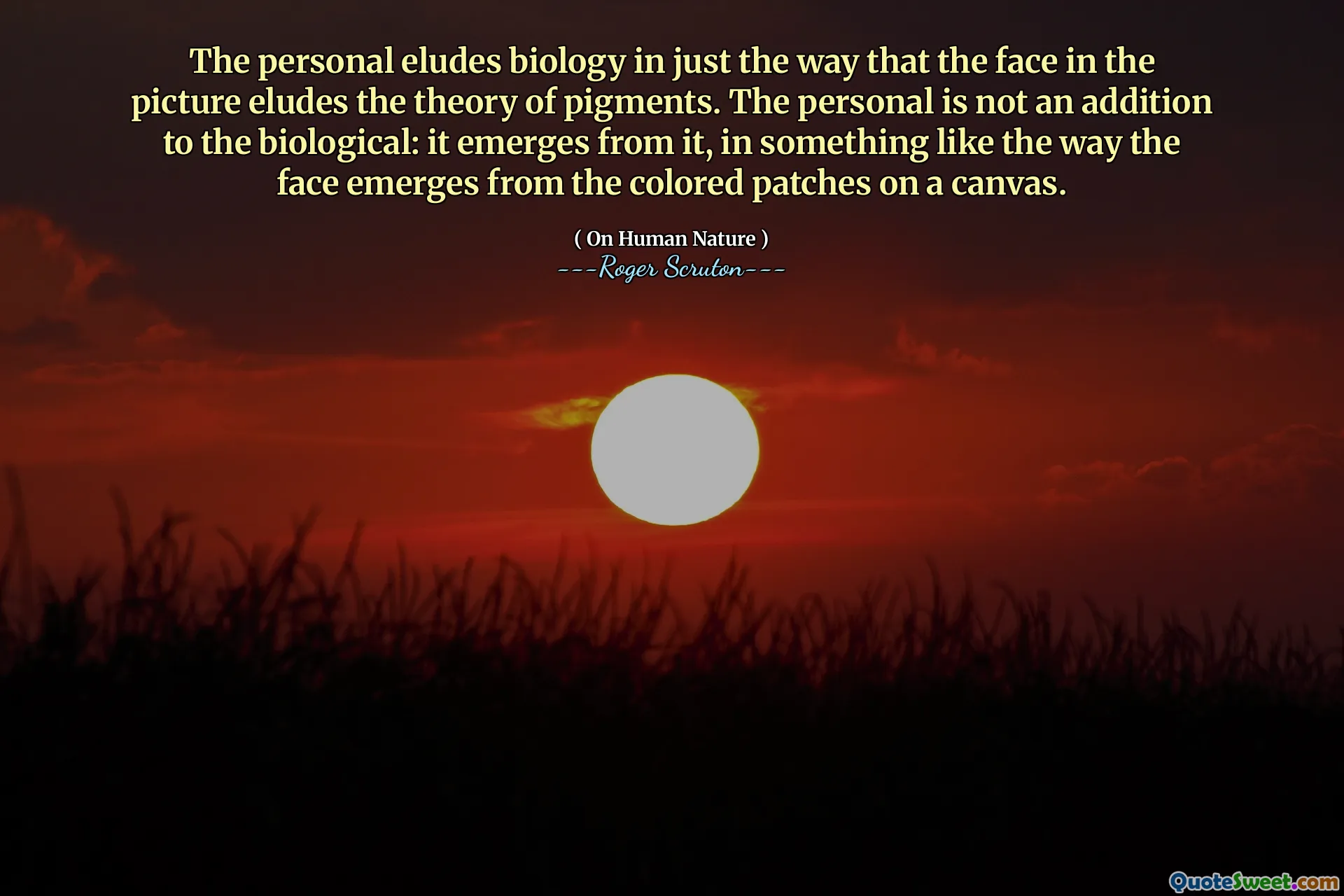
The personal eludes biology in just the way that the face in the picture eludes the theory of pigments. The personal is not an addition to the biological: it emerges from it, in something like the way the face emerges from the colored patches on a canvas.
This quote beautifully captures the complexity and subtlety of human nature by distinguishing the 'personal' from the purely 'biological,' while also describing how the personal arises from the biological in a manner akin to emergent properties in art. It suggests that the essence of individuality — the 'personal' facet of human identity — cannot be fully reduced to biological components, much as a face cannot be exhaustively explained by pigment theory alone.
The metaphor of a face emerging from patches of pigment highlights that understanding the parts individually does not automatically yield an understanding of the whole experience or meaning. This resonates well with holistic or emergent views found in philosophy and cognitive science, where consciousness and personal identity are seen as phenomena that arise from physical substrates but are not simply the sum of those parts.
Roger Scruton's insight invites us to appreciate the human person as something richer and more nuanced than biology alone can explain. It suggests that the personal realm includes qualities, meanings, and experiences that transcend mere biological processes, though they remain inseparably linked to them. This challenges reductive explanations that attempt to locate humanity solely within genetics or neurobiology.
Moreover, the quote calls attention to the value of perspectives beyond the empirical sciences, such as philosophy, art, and phenomenology, in understanding what it means to be human. By doing so, it encourages a more integrated appreciation of life — one that respects biology's foundational role but also honors the emergent properties that grant depth and individuality to the personal self.






